
Arriving at Milan after surprising everyone with his success at Udinese, Zaccheroni led the Rossoneri to their 16th Scudetto after an exciting comeback.
After two disappointing seasons, finishing 11th and 10th, experts in the summer of 1998 believed that Silvio Berlusconi's Milan had closed its best years. The common belief was that it would take many years for the Rossoneri to compete for the title again.
The conviction, before the 1998/99 Serie A season, was that other teams were favorites for the title, especially Sven-Goran Eriksson's Lazio, considered the number one contender after spending over 100 billion on the transfer market.
Behind them were Inter, led by Gigi Simoni with Ronaldo and Roberto Baggio, and the defending champion Juventus under Marcello Lippi. Other strong contenders included Parma and Fiorentina.
Surprisingly, in a season where Inter and Juventus underperformed, Alberto Zaccheroni's new Milan managed to keep pace with Fiorentina and Lazio, the main protagonists for three-quarters of the season. They then staged an incredible comeback in the last seven matches, securing the Tricolore and surprising Lazio.
Exciting Summer Transfer Window
The 1998/99 football season, following France's World Cup victory, began in Italy with a summer full of transfers for top clubs. Controversies around doping and drug abuse in football were raised by Roma's coach, Zdenek Zeman, targeting Lippi's Juventus.
Notable changes were made to regulations, including the random draw for referees and straight red cards for tackles from behind. Lazio, with a budget of 48 billion lire, made significant signings, bringing in players like Christian Vieri, Marcelo Salas, Ivan De la Peña, Dejan Stankovic, Sinisa Mihajlovic, Sergio Conceiçao, and Fernando Couto.
Parma, led by Callisto Tanzi, responded by acquiring Juan Sebastián Verón and Alain Boghossian. Inter, under Massimo Moratti, fulfilled the dream of signing Roberto Baggio and added Nicola Ventola, Dario Simic, Andrea Pirlo, and Sebastian Frey.
In contrast, Juventus chose to intervene in January, signing Thierry Henry and Juan Esnaider. Milan, considered the least favored among the 'big seven,' underwent a transformation with the hiring of Alberto Zaccheroni, the architect of Udinese's miracle.
Zaccheroni's First Season
In Zaccheroni's debut season, he faced reluctance from key players to accept his preferred 3-4-3 formation. Practical difficulties arose in utilizing three center-forwards like Bierhoff, Weah, and Ganz in the attack.
Eventually, the formation evolved into a hybrid 3-4-1-2, bringing success and highlighting the skills of players. In goal, Zaccheroni started with Lehmann, but later, after some struggles, turned to the veteran Sebastiano Rossi and eventually to the debutant Christian Abbiati, who became crucial.
The defense, led by Billy Costacurta, included Luigi Sala and captain Paolo Maldini. Midfielders Demetrio Albertini and Massimo Ambrosini played in the middle, with Helveg on the right and Guglielminpietro on the left. The attacking trio featured Bierhoff and Weah, with support from either Leonardo or Boban.
Ups and Downs in the First Half
The 1998/99 season started with surprises and balance, with Fiorentina leading early. Milan had decent beginnings but suffered a setback against Fiorentina, where Batistuta's spectacular hat-trick secured victory for the Viola.
Inter and Lazio also faced challenges, and Juventus took the lead after overcoming Parma. Milan faced mixed results, with notable wins against Roma and Lazio but also suffered defeats, notably against Fiorentina and Parma.
The first half ended with Fiorentina at the top, followed closely by Parma and Lazio. Milan, with 30 points and in 4th place, had a dignified position, considering the previous disappointing seasons.
The Great Comeback against Lazio and Fiorentina
The turning point for Milan occurred in the last match of the first half. Zaccheroni realized that adapting the 3-4-3 formation to a more functional 3-4-1-2 would better suit the team's qualities.
The Rossoneri started the second half strongly, winning crucial games against Bologna and Salernitana. In the 20th match, they halted Fiorentina's momentum, showing that they were serious contenders.
While Juventus faced difficulties, Lippi resigned, and Ancelotti took charge. Lazio, with Vieri back in form, closed the gap, while Parma and Inter also improved. However, Fiorentina struggled with the departure of Edmundo and Batistuta's injury.
The 22nd match saw a shift in leadership, with Roma holding Fiorentina to a draw, allowing Lazio to take the top spot with 45 points. Milan, with consistent performances, caught up with Fiorentina and Parma in the 2nd position.
Despite Lazio's seemingly stronger position, Milan's steady pace kept them in the race. Lazio won four consecutive matches, but Milan matched them with impressive victories. The 28th matchday saw Milan defeat Parma 2-1, closing the gap to 3 points.
The Thrilling Finale
The tension increased as Lazio faced difficulties, losing 3-1 to Roma, while Milan secured a 4-0 victory against Empoli. The gap narrowed to 1 point. The 29th matchday saw Milan beating Fiorentina and overtaking them, joining Parma at the 2nd position.
Lazio and Milan continued to win, setting the stage for a thrilling final day. Lazio faced Parma, while Milan played against the bottom-placed Empoli. Milan won 4-0, with Bierhoff scoring a hat-trick. Lazio, however, stumbled against Fiorentina, drawing 1-1.
The unexpected turn of events meant that Milan, for the first time with 67 points, took the top spot, facing an away match against Perugia on the last day. Lazio, second with 66 points, played against Parma.
Milan triumphed 2-1 against Perugia, securing the Scudetto. Lazio, winning 2-1 against Parma, couldn't overtake Milan. The final whistle confirmed Milan as the 16-time Italian champions.
The surprise Scudetto marked the beginning of a new era for Milan. Despite tactical disagreements between Zaccheroni and Berlusconi, and subsequent underwhelming results, the achievement of the 16th Scudetto remained a significant milestone in the club's history.
HOW TO EMULATE THIS TACTIC IN FOOTBALL MANAGER 2024
As mentioned above, at the beginning of the season Zaccheroni tried to replicate the same 3-4-3 tactic that made him famous at Udinese but this did not work very well because he lacked the players to do so, especially, the two wingers who could replicate Amoroso and Poggi’s roles. Leonardo and Boban did not like to play wide, preferring to play in central areas and even an inverted winger role did not suit them, while Guglielmimpietro and Helveg were more defensive players, Helveg used to play as wing-back in Zaccheroni’s Udinese too, while the Argentinian midfielder could have played as winger too but Zaccheroni in the first half of the season preferred Ziege who was a left wing-back. In Udinese, Amoroso and Poggi despite being forwards, could play very well as wingers too, while in Milan, maybe only George Weah had the pace and acceleration to play as a right-winger and that’s how Zaccheroni made him play in the first half of the season. But in the second half, Zaccheroni finally decided to switch to a 3-4-1-2 and Boban and Leonardo could play in their natural role. To recreate this tactic, we can start from the same base of Zaccheroni’s 3-4-3 with the main change of Boban playing as an advanced midfielder and two central forwards (Bierhoff-Weah or Ganz). So let’s analyze how I recreated this tactic in Football Manager.
The positive mentality forms the cornerstone for an assertive and forward-thinking playing style, reminiscent of Zaccheroni's Udinese, ensuring on-field dominance while mitigating vulnerabilities to counterattacks.
In possession instructions
The 'Fairly Wide' attacking width approach encourages fluid play, allowing your team to centralize while utilizing the width provided by wing-backs, effectively exploiting both central and wide areas.
Playing Out from Defense: this instruction promotes a composed and controlled build-up from the defensive line, aligning seamlessly with Udinese's possession-oriented play.
Precision in Passing and Dynamic Tempo: the instructions 'Slightly Shorter Passes' and 'Higher Tempo' facilitate swift ball circulation, catching opponents off guard and creating seamless attacking movements.
Low crosses: if you have both forwards who are very good at heading, you can also choose floated crosses.
Work the Ball into the Box to encourage your team to create scoring opportunities within the box rather than relying on long shots. This approach promotes a patient and strategic approach, emphasizing quality chances over quantity.
In Transition Instructions
Counter and Counterpress to actively defend and press opponents to swiftly regain possession, setting the stage for effective counter-attacks from advanced positions.
Goalkeeper's Role:
Direct your goalkeeper to Distribute to Center Backs and 'Take Short Kicks. This aligns with Zaccheroni's emphasis on building play from the back, ensuring controlled distribution and initiation of your team's offensive movements.
Out of Possession Instructions
High Pressing Line and Higher Defensive Line: this compact structure limits opponent space.
Step Up More: this asks our players to use the offside trap.
Trap Outside: to force opponents towards touchlines, limiting their passing options. Combine this with Step Up More to execute an effective offside trap and disrupt the opponent's offensive rhythm.
Prevent Short GK Distribution and Trigger Press Much More Often
Strategically prevent short goalkeeper distributions with 'Prevent Short GK Distribution.' Combine this with 'Trigger Press Much More Often' to incessantly press opponents, disrupting their build-up and creating turnovers in advantageous areas.
Stop Crosses: this prevents opponents from delivering dangerous crosses into the box, maintaining defensive solidity.
Individual Player Roles and Instructions:
Goalkeeper: Sebastiano Rossi-Christian Abbiati- Sweeper-Keeper in Support: no instructions.
Central Defenders: Luigi Sala and Paolo Maldinii - Wide-Center Backs in Support
Both central defenders are deployed as wide-center backs in support. They are instructed to dribble more to aid in build-up play and mark tighter to maintain defensive solidity.
Central Defender: Alessandro Costacurta- Ball Playing Defender in Defend
Costacurta plays as a ball-playing defender in a defending role. He covers the central areas and provides support in building up from the back. I instructed him to dribble more because I want him to carry the ball forward.
Wing-Backs: Helveg and Guglielminpietro- Wing-Backs in Attack
The wing-backs, Helveg on the right and Guly (Ziege) on the left, assume attacking roles. To exploit wide areas effectively, they are instructed to run wide with the ball, stay wider, and mark tighter.
Central Midfielders: Demetrio Albertini and Massimo Ambrosini - Deep-Lying Playmaker and Box-to-Box Midfielder
Albertini, the right central midfielder, plays as deep-lying playmaker with a focus on passing the ball and distributing it. I instructed him to mark tighter and to pass it shorter to help him to build the play. Ambrosini, on the left, operates as a box to box midfielder, emphasizing ball winning. He is instructed to get further forward and move into channels to exploit all the vertical spaces and to mark tighter.
Advanced Midfier: Zvonimir Boban (Leonardo): advanced midfielder in attack: no instructions.
Left Striker: Oliver Bierhoff - Advanced Forward in Attack
Oliver Bierhoff serves as the advanced forward in an attacking role. His instructions include dribbling less to focus on link-up play, shooting more often as the primary goal-scorer, and defending with harder tackles and tighter marking.
Right Striker: George Weah- Deep-Lying Forward: no instructions
George Weah, compared to Bierhoff, drops down more to link the play. I know the advanced forward role maybe suits more to him, but to replicate what Zaccheroni wanted, I believe the deep-lying forward is the best chance. Besides, I don’t like to use double attacking roles in my tactics, like for example two advanced forwards or two false nine or two pressing forwards etc. because they could “break” the game match engine. Even if since Football Manager 2022 and 2023 this problem does not happen as often as in the previous editions, I still avoid this setting.
Results
I used the retro database 1998-1999 to test this tactic with the same AC Milan squad of that season.
With this tactic I won Serie A and Italian Super Cup (winning 5-3 against Inter), scoring a lot of goals (many matches ended with more than 5 goals scored even against strong opponents like AS Roma) and at the end of the season I scored 143 goals (best attack) and allowed only 25 goals (best defense) with a goal difference of 118 goals. Bierhoff is the top scorer of the season with 65 goals in this season (55 in Serie A).
I hope this tactic works for you too. A hug from your Tikitaka Master




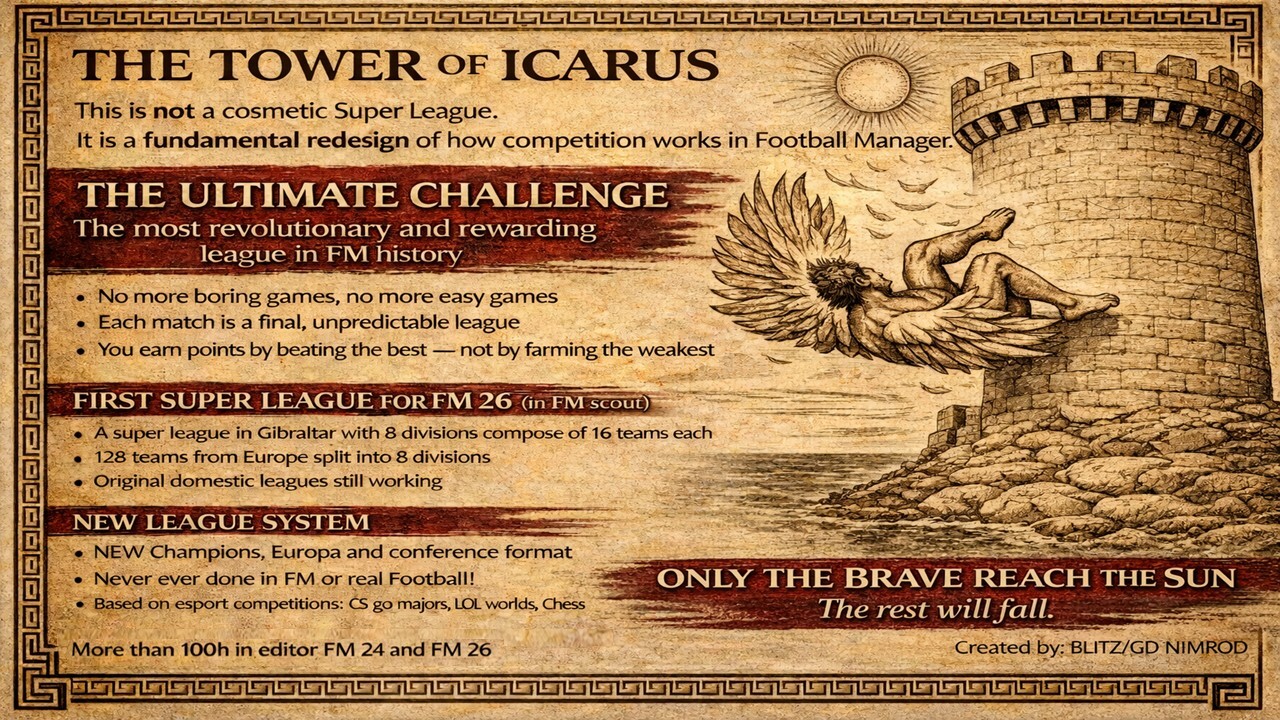
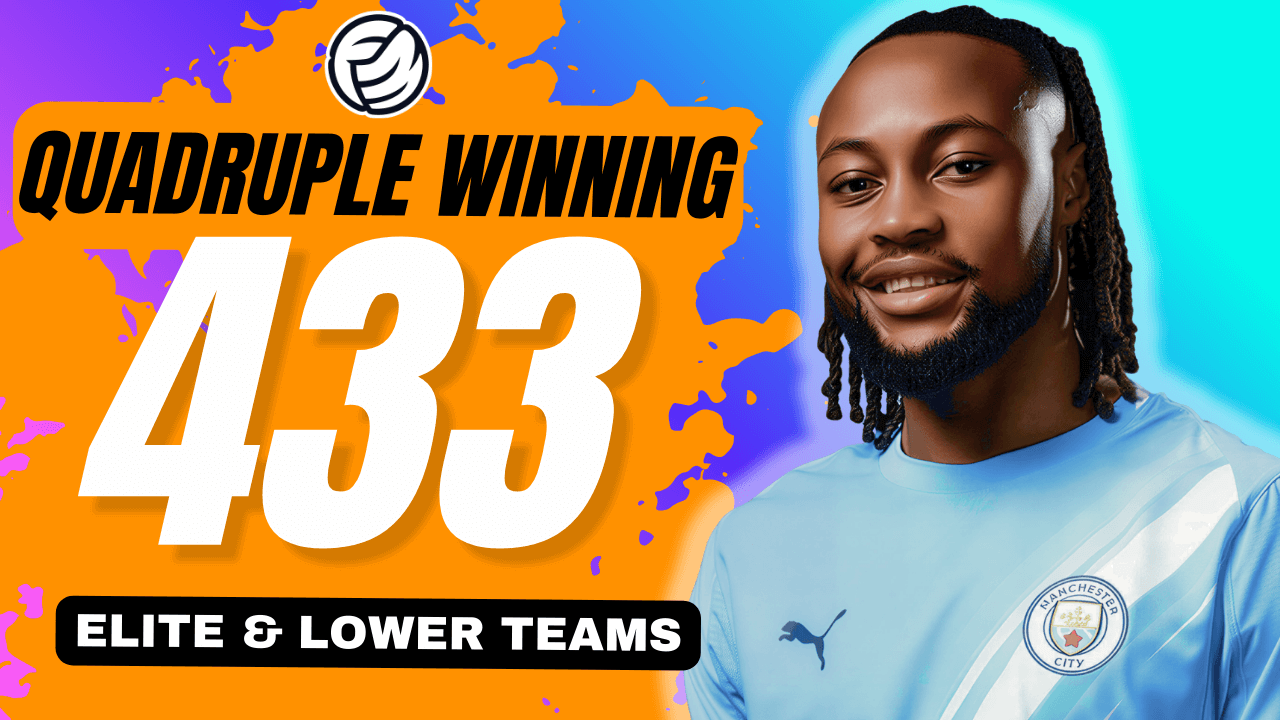
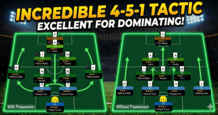

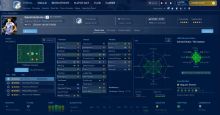
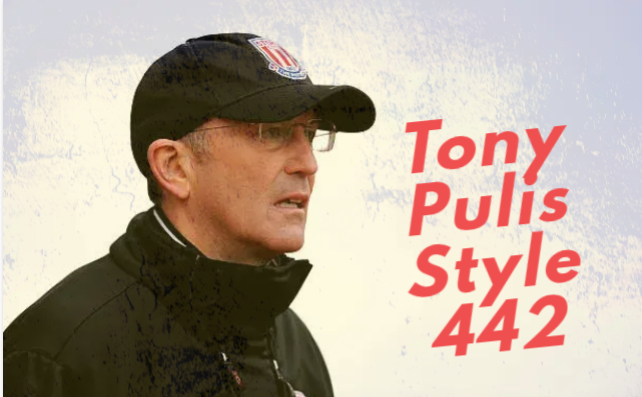

Discussion: Zaccheroni's 3-4-1-2 Milan 1998/99 // Goals Galore Beast
No comments have been posted yet..